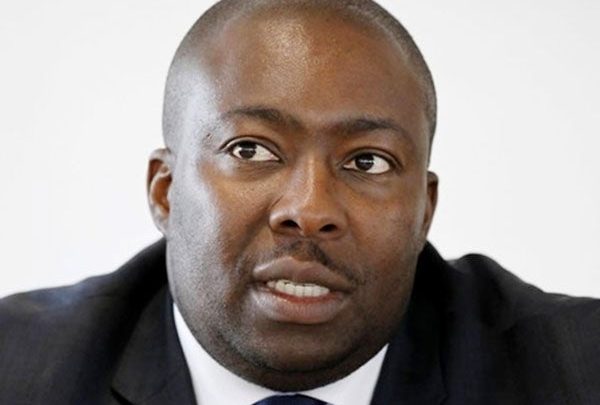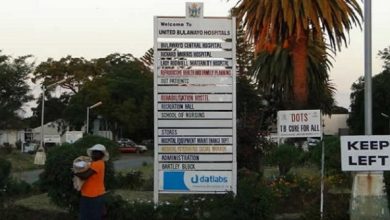Grace Mugabe never made government decisions: Kasukuwere

Former Zanu PF political commissar, Saviour Kasukuwere, has rebutted widely-held claims that former first lady, Grace Mugabe, made key decisions both in the ruling party and government while her husband was in power.
Most people believed Grace was the real power behind the late former president, Robert Mugabe’s rule, amid claims she had also set her eyes on the presidency when Zanu-PF’s succession issue gained momentum.
In an interview with CITE on the flagship online current affairs programme, The Breakfast Club, Kasukuwere said decisions were made in cabinet and not by the former first lady.
Former war veterans’ leader Jabulani Sibanda was arrested in 2014 after he accused the late former president of plotting a “bedroom coup” and threatened to march to State House to confront him.
Kasukuwere`s sentiments came as he was responding to questions on the November 2017 coup, saying the ruling party’s old guard used the military to overcome political contests.
“A contest of ideas cannot be substituted by use of tanks and guns. As a political player then, I don’t think differences warranted that kind of intervention whatever people say. But I guess they became a way for those who were in a haste and wanted power to magnify the challenges. One of the challenges spoken about during the coup was there were criminals around Mugabe who had stolen a lot of money. We are yet to see what was stolen,” he said.
Another factor Kasukuwere cited as leading to the military coup was its organisers assumed Grace had influence over Mugabe and the government.
“They said the first lady then had assumed political authority which was far from it and that she was making government decisions,” he smirked.
“From what I remember, what I know is decisions were made in the cabinet. Contestations of ideas were made in the politburo, people would discuss and if you had a better idea, viewpoint it would carry the day.”
During the succession race, analysts claimed the former first lady had emerged as one of the front runners to succeed her husband and alleged she headed G40, one of the two factions in Zanu-PF at the time.
It was alleged the G40 faction was fronted by former ministers Professor Jonathan Moyo, Patrick Zhuwao, Walter Mzembi and Kasukuwere as well.
Kasukuwere, acknowledges that he and his associates could “tell there was uneasiness in individuals who were then able to mobilise firstly the war veterans and secondly the army to overcome the political system.”
He said the coup was a regrettable development, as the situation could have been handled differently.
“I still think that has to be corrected. It cannot be a feature that remains constant because of the pain it has brought to Zimbabweans. This is not the way to say Zimbabwe is moving forward because we are carrying a coup background.
“We need to cure that behaviour, say from now going forward people must be able to aspire for democratic authority through a democratic process, through selling ideas to people, not coercing people or using guns, threatening people and using violence,” said the former minister.
Kasukuwere also revealed that Mugabe had no personal chosen successor but informed him that one must come from the people.
“In my discussions with him, when we went to Mexico, Mugabe had given me key instructions as political commissar that we must start a process of identifying a leader who will take over. This was a process where people must make a choice,” he said.
“Mugabe was on record saying that the leader must not come from him, but must come from the people. But certainly there were preferences, people might have chosen one person over the other but those were personal preferences. For me I come back to the integrity of the system, we must come back to the democratic system that yields leadership through direct participation of members of the party.”
Kasukuwere, who turned 50 this Wednesday, also revealed that he harboured presidential ambitions.
“I don’t want to say I didn’t have (presidential ambitions). There is no teacher who doesn’t want to become a headmaster. There is no lawyer or judge who doesn’t want to be the chief justice. Everybody in politics aspires to go to the highest office but reaching there is something else. Certainly everyone in politics aspires to be in the highest office, that’s why there are promotions even at work,” he said.






